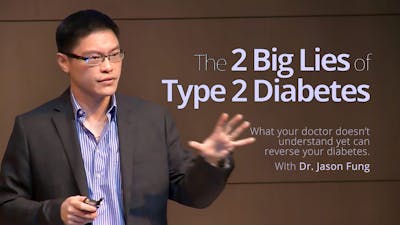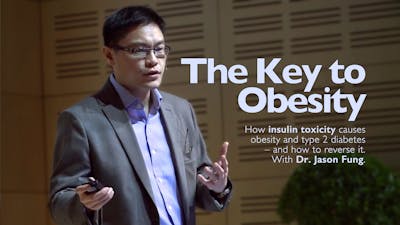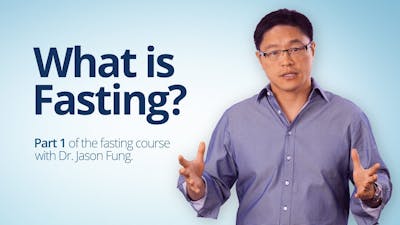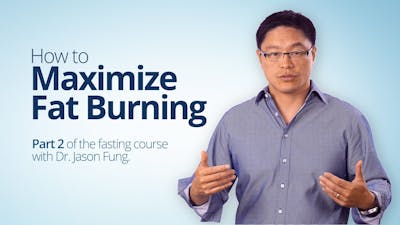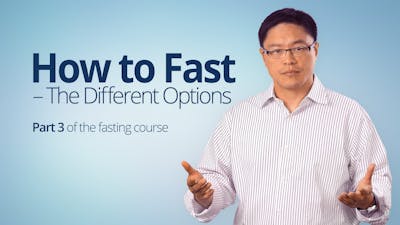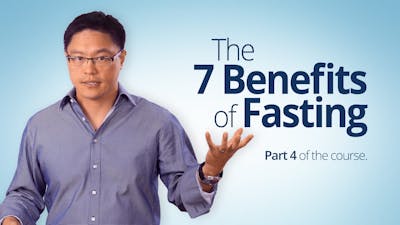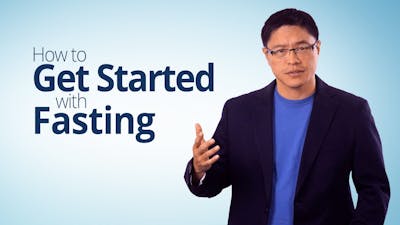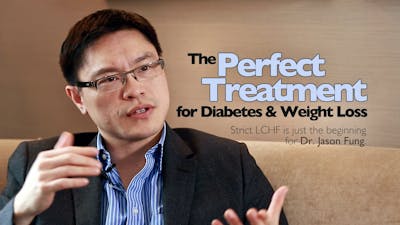The 7 practical benefits of fasting
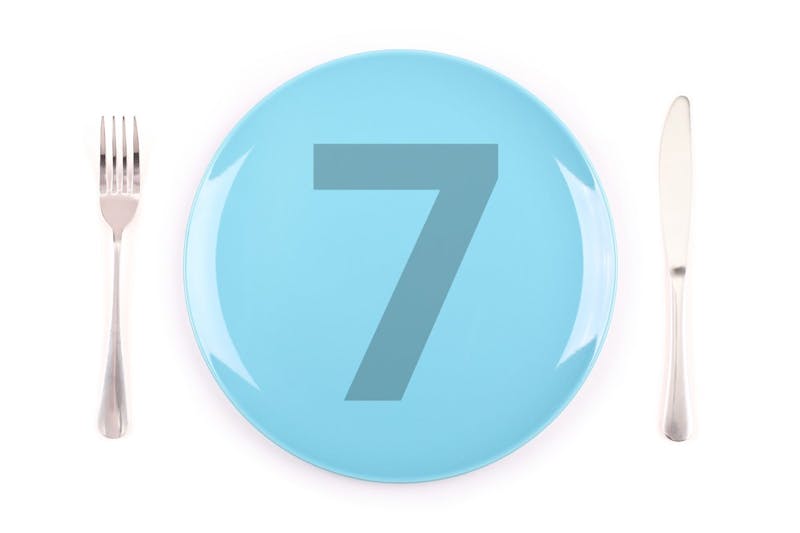 Low-carb high-fat (LCHF) diets are effective for weight loss, but we can potentially do even better by adding intermittent fasting, which offers many advantages not offered by conventional dieting. Both diets have the same goals, which is to improve metabolic health, lower insulin effect, and improve fat loss. While many believe that excess calories alone cause weight gain, that is only partially true. Calories and insulin likely both drive weight gain. LCHF diets lower insulin regardless of calories, but also usually reduce calories without even trying. LCHF is therefore impressively effective for weight loss. However, combining fasting and LCHF may have a synergistic benefit for maximum effect.
Low-carb high-fat (LCHF) diets are effective for weight loss, but we can potentially do even better by adding intermittent fasting, which offers many advantages not offered by conventional dieting. Both diets have the same goals, which is to improve metabolic health, lower insulin effect, and improve fat loss. While many believe that excess calories alone cause weight gain, that is only partially true. Calories and insulin likely both drive weight gain. LCHF diets lower insulin regardless of calories, but also usually reduce calories without even trying. LCHF is therefore impressively effective for weight loss. However, combining fasting and LCHF may have a synergistic benefit for maximum effect.
This guide is written for adults with health issues, including obesity, that could benefit from intermittent fasting. Learn more.
People who should NOT fast include those who are underweight or have eating disorders like anorexia, women who are pregnant or breastfeeding, and people under the age of 18. Learn more.
#7 – Simplicity
LCHF diets are not always easy for people to understand. Many foods contain hidden sugars in the ingredient list. People may not always understand the differences between carbohydrates, fats and proteins. To make it even more complex, carbohydrates differ in their fattening potential. What about fibre? What about the concept of net carbs? What about resistant starch? It can be difficult enough for a well educated English-speaking, computer-literate person to adopt a strict LCHF diet. Not only that, but there is all that conflicting advice flying around the internet and the airwaves.
I would often advise people to adopt a LCHF diet only to find food diaries full of whole wheat bread and plates of pasta. Many people honestly did not understand the diet at all. I spent lots of time and grey hair trying to change their diets, but many people simply did not understand. Furthermore, their diets had not significantly changed in 40 years, and they were having a lot of trouble changing it.
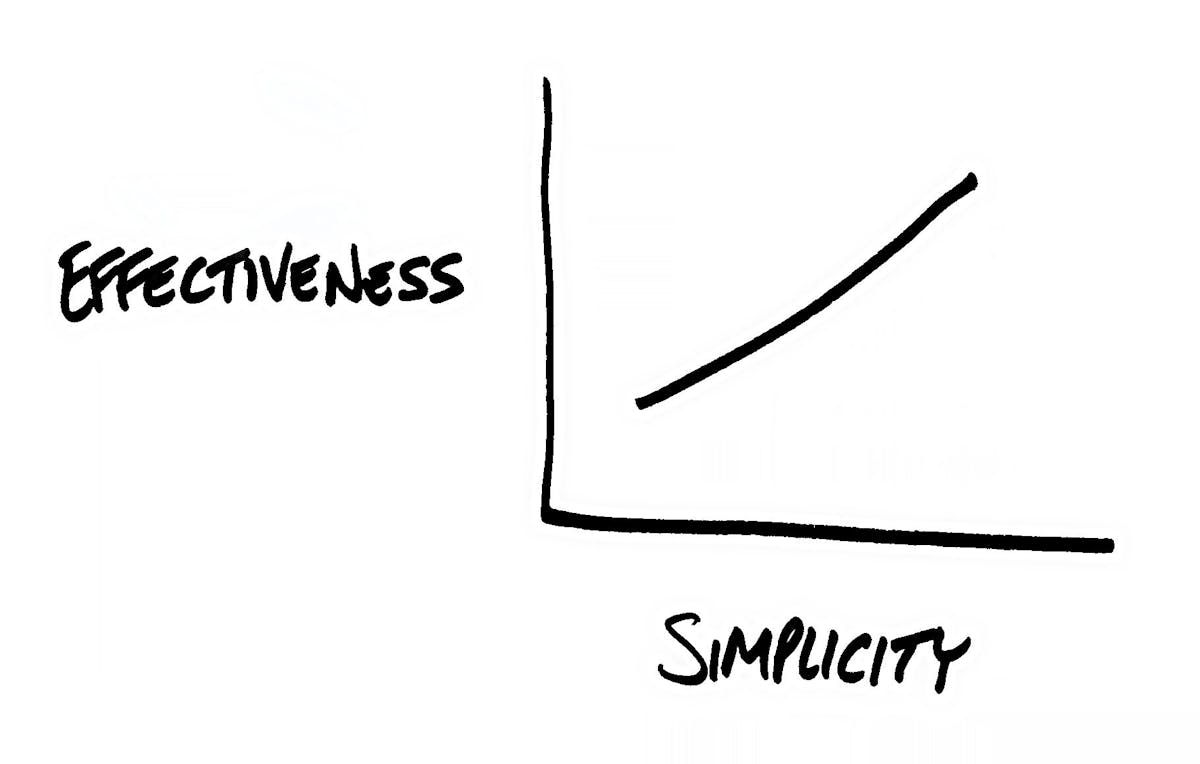


Fasting itself, is so simple that it can be explained in two sentences. Eat nothing including sugars or sweeteners. Drink water, tea, coffee or bone broth. That’s it. Even with this simple method, understanding the intricacies can take hours of explaining.
The most obvious benefit to simplicity, though is demonstrated by the startlingly simple graph above. The simpler, the more effective. Amen.
#6 – Cheap
While I may prefer patients to eat organic, local grass fed beef and avoid the white bread and processed foods, the truth is that these foods are often 10 times the cost. Some people, simply put, cannot afford to eat that well.
How is it that fresh cherries cost $6.99/ pound and an entire loaf of bread will cost $1.99? Feeding a family on a budget is a lot easier when you buy pasta and white bread.



#5 – Convenience
Eating a home cooked, prepared-from-scratch meal is terrific, but there are many people who simply do not have the time or inclination to do so. The number of meals eaten away from home has been increasing over the past few decades. While there are many who try to support the ‘slow food’ movement, it is clear that modern society resists the message.
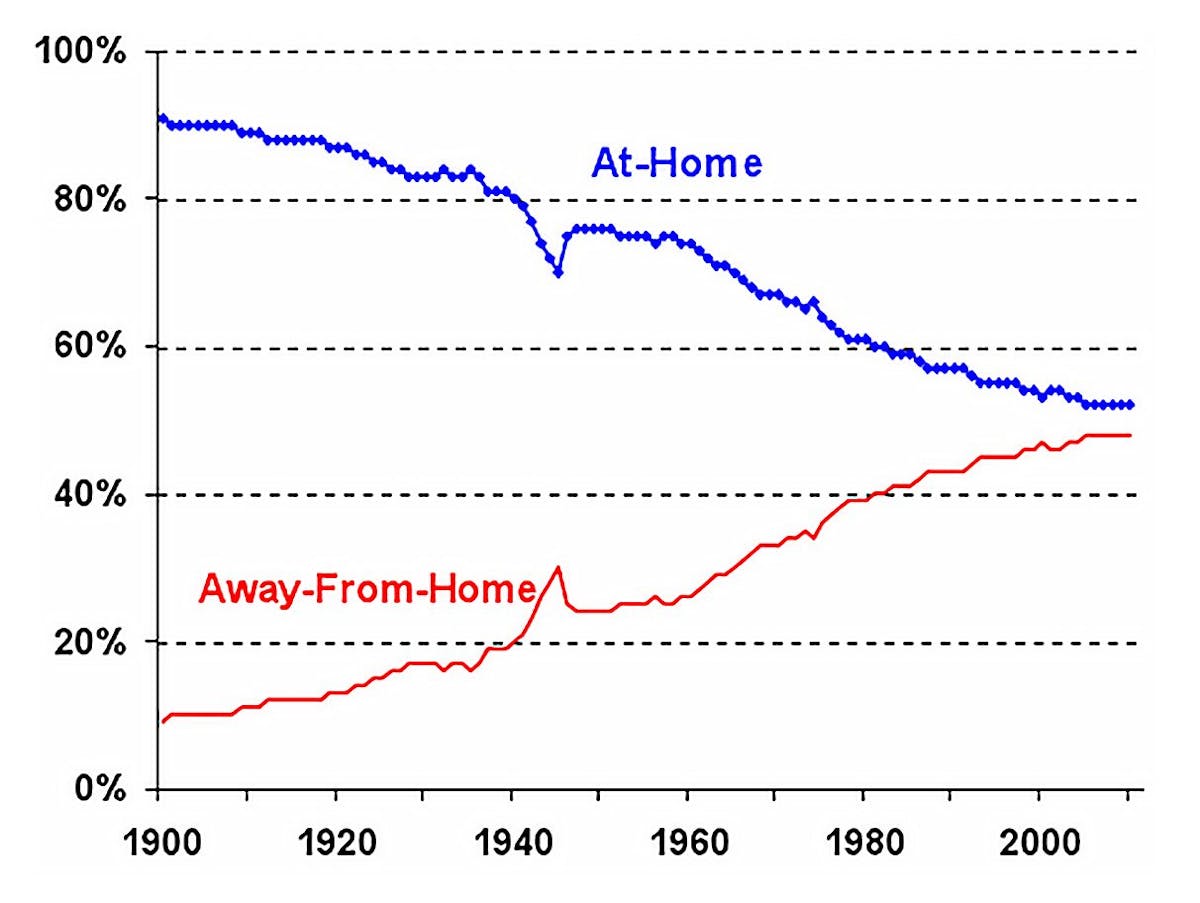


So asking people to devote themselves to home cooking, as noble as it may be, is not a winning strategy for some. Fasting, on the other hand is the opposite. You save time because there is no time spent buying food, preparing, cooking and cleaning up. It is a way to simplify your life. I often skip breakfast in the mornings. Man, the time saved! I often skip lunch, too. Man, the time saved! If time is money….
Where many diets complicate your life (eat this, but not that, and only a little of the other), fasting simplifies it. Save time and save money? It just doesn’t get any better.
#4 – Cheat days
Is it practical to advise people to never, ever again eat ice cream? For life? Forever is a long time and celebrations happen.
You can’t eat dessert every single day, but fasting gives some the ability to occasionally enjoy that dessert because if you feast, you can balance the scales by fasting.
‘Cheat’ days are important because, for some people, they can help build compliance for the other days. While others may do better with an all-or-none approach, for those who struggle with forever, fasting can help balance the “cheat” days. The most important aspect of fasting is to fit it into your life.{note]Please note we aren’t recommending a “binge” followed by “punishing” yourself with a fast. Instead, we feel some people will do better with an occasional treat which they can balance with a short fast.[/note]
Life is intermittent. There are good days and bad days. There are days to celebrate and days to dread. That’s life. Not all, but some people may also benefit from their diet being intermittent.
[Note that cheat days are NOT recommended if one is addicted to sugar or other foods. Some people benefit more from the all-or-none approach. Just like cheat days are not recommended for alcoholics – for more see our cheating guide /AE]
#3 – Power



Certain diets work tremendously for some people but fail utterly for others. Sometimes, diets work for a period of time, and then seem to stall.
Fasting is almost universally effective since it is the fastest and most efficient way to lower insulin. It also contains almost unlimited power. What do I mean? Some diets have only 1 ‘power’ setting. If you follow the Mediterranean diet, but fail to lose weight, then what? How do you become more ‘Mediterranean’? There’s only one power setting and it either works or it does’t. Not so with fasting. You can fast for 10 hours or 10 days (although we do not routinely recommend prolonged fasts, and if you choose to do one, please make sure it is with medical supervision).
In the end, you must ask yourself this question. If you do not eat anything for 1 week, do you think you will lose weight? Even a child understands that you must lose weight. It is almost inevitable.
Fasting Vs. Low Carb – Which Is More Powerful?
There are only two remaining questions. First – is it unhealthy? On the contrary, there are significant potential health benefits. Two – can you do it? Well, if you never try it, you will never know. I think almost everybody can do it.
#2 – Flexibility



There is no set duration. You can fast for 16 hours or 16 days. There is no set schedule. You can fast a lot this week and none next week. It can change with your life’s schedule. You can fast for any reason or no reason at all.
Furthermore, why would we assume that somebody cannot fast for 1 week or 1 month without ever having tried it?
#1 – Add to any diet



You don’t eat meat? You can still fast.
You don’t eat wheat? You can still fast.
You have a nut allergy? You can still fast.
You don’t have time? You can still fast.
You don’t have money? You can still fast.
You are travelling all the time? You can still fast.
You don’t cook? You can still fast.
You are 80 years old? You can still fast.
You have problems with chewing or swallowing? You can still fast.
Simple. Saves money. Saves time. Flexible. Powerful. Available anytime, anywhere. What could be better than that?
More
Intermittent fasting for beginners
The fasting video course
Do you you want to learn more about fasting from Dr. Jason Fung? Check out our new video course. The first part is freely available for anyone.


More
